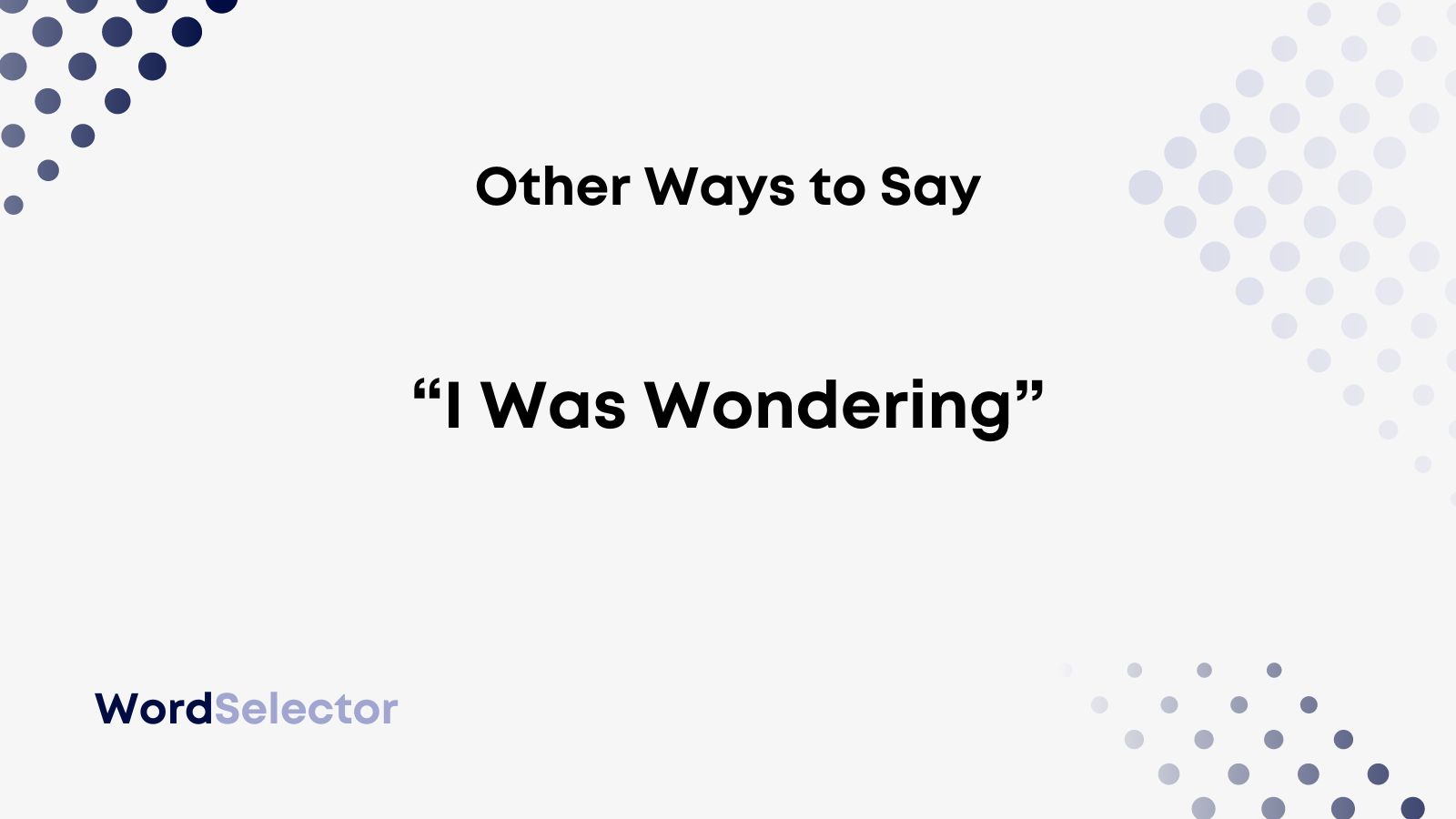Have you just tried to write “I was wondering” and wondered whether it’s good to include it at the start of an email? Or are there better synonyms that work well?
Luckily, we have all the answers to help you!
Other Ways to Say “I Was Wondering”
- I’m writing to confirm
- Just checking
- I was thinking
- Just had a brainwave
- I wonder if
- Just to check
- Just to confirm
- I’m just wondering
- I am thinking
- Just in case
- I’m a bit worried about
KEY TAKEAWAYS
- “I was wondering” works best informally and isn’t very effective in formal writing.
- “I’m writing to confirm” is a great formal synonym you can use in a business email.
- Try using “just checking” as an informal alternative if you’re emailing or messaging friends.
There’s a lot to say about these alternatives. You should keep reading to learn more about the best variations in both formal and informal English.
You can also learn whether it’s correct to say “I was wondering.” If you came here to check the best ways to use it, you can skip to the final section.
I’m Writing to Confirm (Formal)
You should use “I’m writing to confirm” in formal emails. It shows that you’re verifying some details to ensure you’re on the same page as the recipient.
“I’m writing to confirm” works best when you have to check some facts. Try using it when you are setting up a meeting with a potential employer. It shows you want to verify the meeting times before attending.
We definitely encourage using “I’m writing to confirm” in formal emails over “I was wondering.” “I was wondering” is not very professional. “I’m writing to confirm” comes across as much more confident and sincere.
Here are a few email samples to show you how it works:
Dear Benjamin,
I’m writing to confirm that we’re still okay to meet at three. Have you got the documents?
Yours,
Julie
Dear Mr. Paramore,
I’m writing to confirm that the meeting still will continue as stated. Has anything changed?
All the best,
Sara
Just Checking (Informal)
“Just checking” works much better in informal situations. Including “just” in the phrase shows that you’re being more conversational rather than professional.
It’s best to use a phrase like this when confirming information with friends. It shows you want to “just check” to ensure you have the correct details.
If you add “just” to any sentence or phrase, you’re likely creating an informal sentence. Generally, leaving “just” out of the phrase can keep it quite formal. For instance:
- Informal: I’m just checking to see what you said.
- Formal: I’m checking to see what you said.
In this case, we’re using “just checking,” which is more conversational. Since “I was wondering” also tends to be more conversational, you can use both in informal contexts.
However, “just checking” does not belong in formal emails. Stick to a more formal synonym if you want to include it in business exchanges.
Here are a couple of examples to show you how it looks:
Well, I’m just checking that everything is still going to work out for us.
I’m just checking that we have everything we need before continuing.
Is It Correct to Say “I Was Wondering”?
“I was wondering” is grammatically correct and works well at the start of a sentence. Generally, you won’t want to include it any later in a sentence.
For example:
- I was wondering if you’d like to help me with this.
Notice how we did not include a question mark at the end of a sentence, though. While “I was wondering” sounds like a questioning term, it does not turn the sentence into a question. You must use a period to end the sentence like any other.
You may also come across a few variations of the phrase. No matter how you word it, it never turns the sentence into a question:
- I was wondering whether
- I was wondering if it would be possible
- I was wondering if you had a chance
- I was wondering if you could please
It’s worth noting that “I was wondering” is not effective in formal English. While it’s deemed polite as a phrase, it is not professional. It comes across as concerned rather than confident.
You could always bookmark this page if you need a reminder about using “I was wondering.” It’s worth returning whenever you try to figure out what to write in business emails.

